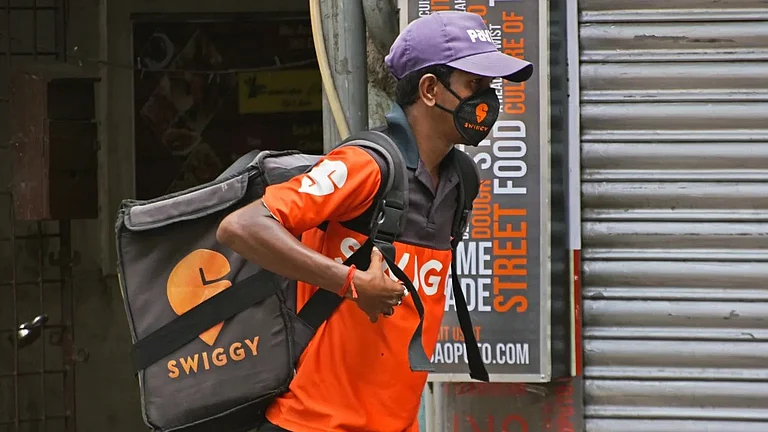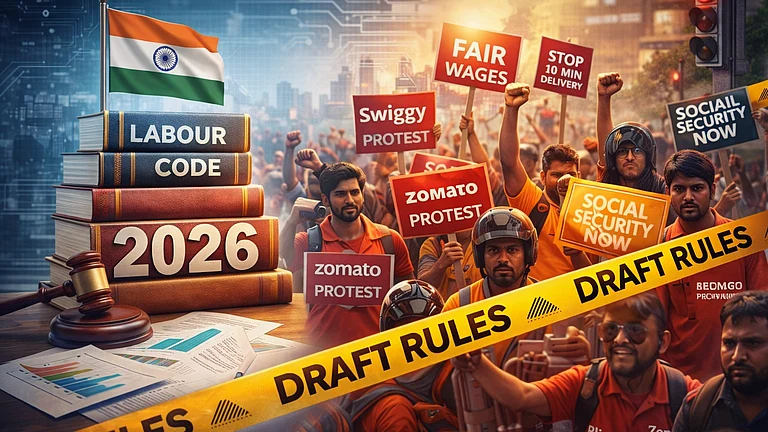The Indian economy is undergoing a transformation, fuelled by the rise of the gig economy. Unlike traditional employment models, this new landscape offers individuals greater flexibility and control. over their work schedules. From driving app-based taxis to delivering groceries, millions of Indians are embracing the gig life. As per Niti Aayog, almost 25 million Indians will be part of the gig workforce by 2030, a substantial portion of the total employed population.
While the gig economy provides opportunities for many, it also presents a unique set of challenges. Gig workers, by the very nature of their work arrangements, often lack the social security benefits that come with traditional employment. One of the most concerning issues is the lack of access to health care. insurance.
The Perilous State of Health Insurance for Gig Workers
Unlike salaried employees who receive employer-sponsored health insurance plans, gig workers are left to fend for themselves. A study by CIIE paints a grim picture, revealing that only one in five gig Workers have life or health insurance coverage. And from those that are covered, it is highly probably that they are not sufficiently covered. This exposes them to significant financial risks, as even Minor medical emergencies can lead to substantial out-of-pocket expenses. Furthermore, a large portion of total healthcare spending comes from out-of-pocket expenditures. The Total out-of-pocket healthcare expenditure in the country is almost touching 50 per cent. For gig workers, whose income can be variable and often project-based, a sudden medical expense can be financially devastating.
The Ripple Effects: Beyond Financial Burdens
The lack of health insurance for gig workers goes beyond the immediate financial strain. The fear of medical bills can deter them from seeking timely medical attention. This can lead to a delayed diagnosis. and treatment, potentially worsening health conditions and impacting their ability to work. Furthermore, the stress and anxiety associated with potential medical bills can negatively affect their productivity and overall well-being.
Emerging Solutions: A Glimpse into a Brighter Future
While the current state of health insurance for gig workers presents a significant challenge, there are positive developments on the horizon. Some progressive companies are taking the initiative by offering health insurance plans for their drivers, delivery partners, and other gig workers. These plans, while varying in scope and coverage, typically offer some level of financial protection for emergencies, hospitalization, and daycare procedures. Furthermore, some state governments are recognizing the need for action. The recent announcement of a health insurance program for gig workers in Karnataka, offering coverage for accidents and Hospitalization is a step in the right direction. These initiatives demonstrate a growing awareness of the challenges faced by gig workers and a commitment to providing them with a degree of security.
Challenges and Considerations on the Road Ahead
While these developments are encouraging, there's still a significant distance to cover. Ensuring wider Coverage across the diverse landscape of the gig economy presents a major challenge. The fragmented nature of the gig workforce makes it difficult to reach all workers and ensure consistent enrolment in health insurance plans. Another critical issue is the standardization of benefits. There's a lack of uniformity in health insurance. plans offered by different companies or government programs. This inconsistency can create confusion. and limit the effectiveness of these initiatives. Establishing minimum standards for coverage would be crucial in ensuring that gig workers receive adequate protection.
A Collaborative Approach: The Path Forward
Government Intervention: The government can play a critical role in mandating health insurance. coverage for gig workers. They can develop and facilitate efficient enrollment processes to ensure inclusivity. A central insurance scheme for gig workers can also be a catalyst to drive adoption and could help design affordable yet comprehensive health insurance plans specifically tailored for the needs of the gig workforce.
Start-Ups and platform companies: Start-Ups and platform companies that rely heavily on gig workers have a vested interest in their well-being. They can contribute by offering subsidized health insurance. Plans or partnering with insurance companies to develop bespoke coverage options for their workers.
Insurance Companies: Insurance companies can play a crucial role by designing innovative and affordable health insurance products specifically catered to the gig workforce. These plans should be flexible and adaptable, allowing for variable income and offering coverage options that are easily scalable based on specific needs.
Industry Associations and Advocacy Groups: Industry associations and advocacy groups can play a vital role in raising awareness about the importance of health insurance for gig workers. Additionally, such bodies can launch their own insurance programs for certain categories of gig workers to subscribe to.
Building a Sustainable Future: Looking Ahead This holistic approach, encompassing mandatory coverage, standardized benefits, and collaborative efforts across stakeholders, and ongoing innovation will be key to bridging the health insurance gap for India's gig workers. As the gig economy continues to evolve, ensuring access to quality healthcare will be essential for fostering a thriving and secure work environment for this increasingly critical segment of the Indian workforce.
(The author is cofounder and CEO at Bharatsure. The views belong solely to the author)


























